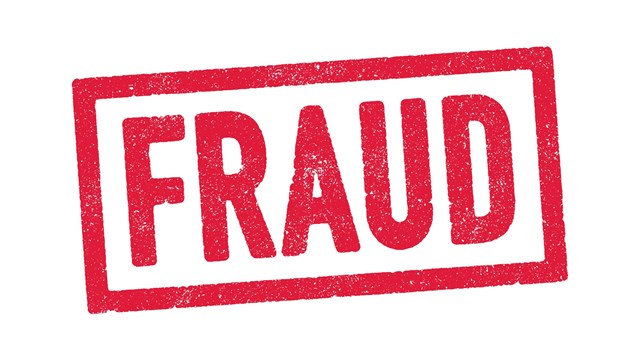For the board members and managers handling the successful operation of a co-op or condo community, one of their biggest responsibilities revolves around their fiduciary duties. They are, after all, dealing with people’s biggest assets: their homes.
“The board of directors must act in compliance with its fiduciary duties and in furtherance of its fiscal responsibilities to ensure the financial condition of the cooperative corporation and maintain safeguards to protect the fiscal soundness and integrity of both its operating accounts funds and reserve funds,” says attorney Ronald A. Sher, a founding partner with the firm of Himmelfarb & Sher, LLP, in White Plains..
Fortunately, in most cases the governing documents of a co-op or condo lay out a road map for the handling of common funds. But sometimes the path can become less clear – and that’s when the real challenges arise.
Knowing What’s What
There are a number of different funds that constitute the ‘common funds’ for a co-op or condo community. These include reserve, operating and petty cash funds.
“Operating funds are to be used for operating the building,” says Brad Schneider, an accountant and president of CondoCPA, which has offices in Illinois, Florida, and California. “They are generally ongoing maintenance and repair items. The reserve fund should be used for components of the building that are to be replaced or repaired. The petty cash fund is usually cash that is kept on-site for small expenses that are needed immediately, such as paper for the copier.”
J. David Ramsey, an attorney and shareholder at Becker & Poliakoff in Morristown, New Jersey, says there are two common types of reserve funds: “One is typically referred to as a capital reserve fund, and the other a deferred maintenance fund.”
The capital reserve fund is for the ultimate replacement of existing capital items, such as roofs, roads and sidewalks. According to Ramsey, “An association will typically obtain a capital reserve study by an engineer or architect that projects the remaining life of the capital items, the cost in then-current dollars to replace the items, and how much needs to be set aside each year to pay for the replacement.”
Not all associations will have deferred maintenance funds, Ramsey continues, but for those that do, the purpose of those funds is to cover the costs of maintenance that occur less frequently than annually, but are not capital in nature. Examples of items covered by deferred maintenance funds include things like the sealing of roads and driveways, or the exterior painting of buildings.
Following the Road Map
When it comes time to access or spend from the common funds, board members and managers usually have a road map to follow in the form of governing documents as well as state laws and regulations.
“While for instance the New Jersey Condominium Act states that an executive board ‘shall’ maintain the common elements, it does not get into any details about the funds to be maintained, whether owner approval of certain expenditures is required, et cetera,” says Ramsey. “What you will find in most governing documents is broad authority in the board to expend the funds it determines are necessary to undertake its obligations.”
Typically, the language in those documents simply outlines what the fund is for and how it should be spent. For example, Ramsey shared this description of the annual expense fund from a set of governing papers:
“...The Annual Expense Fund shall be utilized for, without limitation, expenditures for the year in which the budget is adopted and will include general common element maintenance…utility charges, annual insurance premiums, professional fees, and the like, and including reasonable allowances for contingencies and working funds.”
There are two instances, Ramsey says, when that authority is restricted by the need to secure a vote of the owners. “One is if the board wishes to adopt a special assessment over a certain amount of money – usually the threshold is between $10,000 and $25,000,” he says. “Or where the board wishes to initiate a new capital improvement – not a replacement – such as a recreational amenity, new parking spaces, et cetera, that exceeds a certain dollar amount. In those two instances, it is usually necessary to obtain a vote of the owners. Sometimes just a simple majority is sufficient, but in some documents, as much as two-thirds of the owners must approve.”
Keeping Funds Secure
In addition to the proper expenditure of funds, the board also has a responsibility to protect the money in hand. One way to do that is to have multiple eyes on the funds.
“The dual signatory requirement together with the do’s and don’ts is an invaluable tool, in keeping the funds safe,” says Sher.
Ramsey agrees. Safeguards can be set up “by resolution of the board or by requiring, for instance, two signatures for expenditures over a certain threshold,” he says.
In the future, this will include electronic approval approaches by management companies. “Management companies are more frequently using a system where invoices are electronically managed and before any funds are paid out, a copy of the invoice is available to the treasurer and any other board member stipulated by the board to sign off on it.”
Once the board member has issued approval, the invoice will be paid. The treasurer must then review monthly expenditures to ensure that only approved items have been paid. “This creates an electronic trail and reduces the amount of time between receipt of an invoice and its payment,” Ramsey says.
Some funds may be more vulnerable to risk than others. For example, “the petty cash fund should be a small balance and should not be used regularly,” says Schneider. “The reason being is that it bypasses many of the controls that are set up to ensure that expenditures are approved before an item is purchased.”
Oversight offers an invaluable tool in ensuring that everyone involved in the finances of the co-op, condo, or association understand the rules correctly and are following them. “Oversight can be the system of internal controls set up at a management company,” Schneider says. “It can be the controls set up by the board over a treasurer who is performing many of the accounting functions in a small association. Oversight can be using an accounting firm for the monthly accounting duties when the association is self-managed or having an annual audit or review Transparency is the key to having oversight.”
It is important, too, for board members and managers to always be aware of and on top of what third party providers may be doing on their behalf as well. Says Schneider, “If a third-party vendor such as Avid Pay is used to approve and pay the bills, controls should be set up so that the board authorizes payment for self-managed associations or the supervisor and manager sign off before payment of invoices.”
He also suggests that monthly financial statements be sent to the treasurer and include the balance sheet, the budget-to-actual-income statement, the bank reconciliations, and copies of the bank statements and investment statements. In addition, “the board should be approving all contracts and they should be seeing the bids obtained” before hiring vendors, says Schneider. That level of transparency in all aspects of spending can help prevent problems before they ever have a chance to start.
Safeguarding resources also means managing the money properly, including management of investments and protection of assets. Says Sher, “The reserve funds deposited in any financial institution should not exceed FDIC limits or SPA mandates of coverage and all funds of the cooperative must be treated in compliance with the applicable prudent investor rule.” That rule is defined as a guideline that requires a fiduciary to invest trust assets as if they were his or her own and also that the individual avoid investments that are excessively risky.
Avoiding Problems
That idea of looking after the resources of the building or community as if they were one’s own rests at the heart of good financial management of common funds. Schneider shares the stories of several associations that allowed management the use of credit cards to pay for some building-related expenses. “They would approve the credit card bill without seeing any of the invoices attached to it,” he says. “Later, at both buildings the manager was charging personal items on the credit card.”
Ramsey also has seen unfortunate events due to association administrators not keeping a close enough eye on what was transpiring. “In one instance, a large association with several thousand units had a full-time maintenance supervisor as well as a staff of maintenance personnel,” he recalls. “The maintenance supervisor also had a separate maintenance company, and from time to time would recommend the use of his company when the needs of the association exceeded the capacity of the in-house employees. It was discovered that not only was the maintenance supervisor unnecessarily billing for work by his company, but he was using association employees to do work during their normal hours for the association under his company’s name, and billing the association for the labor – plus using those same employees for work for other communities.”
In short, it pays—both literally and figuratively—to know and understand the responsibilities involved in managing the money of others and committing to effective and accurate oversight of those funds. Without that dedication to transparency, risk will grow as will the number of sleepless nights faced by board members and managers alike.
Liz Lent is a freelance writer and longtime contributor to The Cooperator.







Leave a Comment